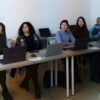
PROBLEM STATEMENT
The documentary film project titled “Feed” embarks on an exploratory journey into the profound impacts of digitalization on society, casting a spotlight on the multifaceted transformations brought about by technological advancements. This exploration delves into the dynamic shifts observed in social structures, employment landscapes, privacy concerns, and the overarching digital divide, seeking to unravel the intricate web of digital transformation’s positive and negative aspects.
Digitalization, a force majeure in contemporary society, is reshaping the way we live, learn, and interact. Yet, this transformation does not come without its set of challenges. The acceleration of technological progress, while promising an enhanced quality of life, raises significant concerns over exacerbating social inequalities. Access to technology, starkly uneven across different societal strata (levels), further deepens the chasm of digital divide, leaving some segments of the population struggling to keep pace with rapid changes.
The advent of automation and artificial intelligence heralds unprecedented efficiency and productivity gains. However, this progress is shadowed by the looming threat of job displacement, stirring anxieties over future employment prospects and economic stability. Similarly, the proliferation of social networks has emerged as a double-edged sword; although they have the potential to unite individuals across geographical divides, they also amplify ideological polarization and contribute to the erosion of privacy.
The documentary sets out to examine these paradoxical outcomes of digitalization, from the erosion of privacy and the growing concerns over data confidentiality to the transformative potential of technology in fostering new forms of artistic and cultural expression. It also touches upon the generational rifts widened by differing levels of tech fluency and the psychological ramifications of social media dependency.
In navigating these complex landscapes, “Feed” seeks to strike a delicate balance between embracing innovation and preserving traditional values, highlighting the imperative need for equitable access to technology. This film aims not only to document the current state of digital transformation but also to spark a conversation on how society can harness technological advancements for the greater good, ensuring a future where technology serves as a bridge rather than a barrier.
Key POINTS
- Digitalization is reshaping society but also exacerbating social inequalities.
- The digital divide and uneven access to technology highlight the need for inclusive digital transformation.
- Automation and AI bring efficiency but also raise concerns over job displacement and economic stability.
- Social networks, while connecting people, also contribute to privacy erosion and ideological polarization.
- The documentary explores finding a balance between technological innovation and preserving traditional values.
PROJECT GOALS
The documentary film “Feed” aims to achieve several pivotal objectives, designed to illuminate the multifaceted effects of digitalization on society. Through this film, we aspire to foster a deeper understanding and stimulate a broader conversation about the digital era’s impact, challenges, and opportunities. Here are the key objectives.
Raise awareness: elevate public consciousness about the diverse effects of digitalization on society, spotlighting both its potential benefits and inherent risks.
Encourage dialogue: stimulate discourse on finding equilibrium between technological advancement and ethical considerations, aiming to engage a wide audience in reflections on how to harmonize these aspects for the common good.
Explore impact: investigate how different demographics are affected by technological changes, providing insights into the digital divide and proposing ways to bridge this gap.
Envision the future: offer perspectives on the future of digital transformation, contemplating its direction and the potential paths it might take.
Highlight positive outcomes: showcase examples of positive technological progress, illustrating how innovations can enhance quality of life and solve pressing global challenges.
Address challenges: shed light on the issues related to privacy, employment, and the ethical dilemmas posed by rapid technological changes.
Support educational initiatives: advocate for educational programs aimed at reducing the digital divide, emphasizing the importance of inclusive access to technology and information.
Inspire solutions: motivate viewers to seek and support solutions that mitigate the negative aspects of digital technologies, fostering a safer and more equitable digital environment.
Lay groundwork for global discussions: create a platform for global discussions on the societal implications of living in a digital age, encouraging a collective vision for a technology-enhanced future.
Promote critical engagement: enhance critical engagement with digital content, aiming to improve the public’s ability to discern and critically assess information in a digital context.
Showcase dual perspectives: present an unbiased examination of the technological progress’s positive and negative sides, offering a balanced view that encourages informed decision-making.
Foster critical thinking: encourage the development of critical thinking regarding digital innovations, helping individuals navigate the complexities of the digital world with greater awareness and skepticism.
Demonstrate adaptation success: display examples of successful adaptation to digital changes across various life aspects, providing inspiration and practical insights for embracing technological shifts.
Stimulate public discourse: galvanize public dialogue about a future where technology unequivocally serves humanity’s best interests, envisioning a world that maximizes the benefits of digital advances while minimizing its drawbacks.
Through these objectives, “Feed” seeks to engage viewers in a comprehensive exploration of our digital present and future, aiming to contribute significantly to the global conversation on shaping a society that thrives amid technological evolution.
IMPLEMENTATION METHODS
To bring the vision of “Feed” to life and effectively communicate its themes, a multifaceted implementation strategy is employed, drawing upon a blend of expert insights, technological tools, and engaging narrative techniques. This approach is designed to maximize the documentary’s impact and ensure it resonates with a broad audience, fostering a deeper understanding of digitalization’s societal effects.
Firstly, the documentary features interviews with leading experts in technology, sociology, and economics, offering diverse perspectives on digital transformation. These interviews provide foundational knowledge and nuanced viewpoints, enriching the narrative with expert analysis and predictions.
Modern visualization tools play a critical role in illustrating complex technological processes, making them accessible and engaging for viewers. Through dynamic graphics and interactive segments, the documentary simplifies intricate subjects, enabling audiences to grasp the essence of digital advancements and their implications.
Statistical data analysis underpins the documentary’s arguments, offering evidence-based insights into digitalization’s impact. This approach ensures that conclusions are not only compelling but also grounded in factual evidence, providing a solid basis for understanding and discussion.
Interactive segments invite viewer participation, fostering an immersive learning experience. By engaging directly with the content, audiences are encouraged to reflect on their relationship with technology and its societal implications.
Narrative filmmaking techniques are employed to evoke emotional responses, creating a connection between viewers and the subject matter. This storytelling approach enhances the documentary’s appeal, making it not just informative but also profoundly moving.
Post-screening discussions and roundtable events extend the dialogue beyond the film, facilitating community engagement and further exploration of the themes. These forums provide spaces for viewers to share their thoughts, questions, and insights, deepening the documentary’s impact.
Collaborations with educational institutions aim to integrate “Feed” into curriculums, supporting educational initiatives and promoting digital literacy. This partnership extends the film’s reach, making it a resource for students and educators alike.
Supplementary materials developed alongside the documentary offer additional depth and context, enabling interested viewers to explore the subject matter further. These resources serve as a valuable tool for both individual and academic inquiry.
Finally, social media and digital platforms are leveraged to expand the project’s audience and engage the public in ongoing dialogue. By utilizing these channels, “Feed” reaches beyond traditional viewing spaces, sparking conversations across various online communities and fostering a broader understanding of digitalization’s role in society.
Through these methods, “Feed” aims not just to inform but to inspire action and reflection, contributing to a more informed and thoughtful discourse on the future of our digital world.
IMPLEMENTATION PHASES
The realization of the documentary film “Feed” unfolds through a series of meticulously planned stages, each critical to the project’s success. This phased approach ensures the film’s content is not only compelling and informative but also resonates with the intended audience. Here’s an overview of each phase:
Preparation Phase
- Formation of a working group and identification of key themes for exploration.
- Collection and analysis of current information on digitalization.
- Development of the film’s concept and structure to clarify the main idea.
- Writing a detailed script incorporating current data and expert opinions.
- Script adjustments based on feedback from specialists and the target audience.
Pre-production Phase
- Budget formulation and expenditure planning.
- Scheduling of shooting dates and key production milestones.
- Selection of the director, cinematographer, and other key team members.
- Casting of actors and selection of experts to feature in the film.
- Location scouting and selection of necessary equipment.
Production Phase
- Organizing and conducting filming according to the approved plan.
- Recording interviews with experts and project participants.
- Utilizing archival materials to illustrate key points.
Post-production Phase
- Editing of the footage to create the final version of the film.
- Addition of music and sound effects to enhance the impact.
- Color correction and image processing to achieve a unified visual style.
- Creation of titles and subtitles to make the content accessible to a wide audience.
- Formatting the film for various platforms and media.
Distribution and Screening
- Seeking partners and distributors for the film’s release.
- Organizing participation in international film festivals and competitions.
- Developing and implementing a marketing strategy to attract attention to the film.
- Conducting public screenings and organizing discussions with the audience.
- Utilizing social media and digital platforms for promotion.
Through these stages, “Feed” is meticulously crafted from conception to screen, ensuring that every aspect of the documentary is tailored to engage, inform, and inspire the audience. This structured approach not only facilitates the smooth realization of the project but also maximizes its reach and impact.
OUR EXPERIENCE
Our team behind “Feed” documentary brings to the table a wealth of experience and a proven track record in the field of film production, particularly in projects that delve into pressing social issues. This foundation not only informs our approach to creating impactful cinema but also underscores our commitment to quality, innovation, and social relevance. Here’s an overview of our expertise.
We have successfully completed film projects for renowned organizations like Unicef, as part of the Spilno project. This experience has not only honed our skills in storytelling and visual communication but also affirmed our ability to handle themes of significant social importance with sensitivity and insight.
Our team comprises specialists with advanced degrees in film studies, ensuring a deep understanding of the cinematic arts’ theoretical and practical aspects. This academic background, combined with hands-on experience, positions us uniquely to craft narratives that are both compelling and intellectually robust.
We possess a rich portfolio of documentary and narrative films that address contemporary social issues, demonstrating our commitment to using cinema as a medium for social commentary and change. Our work reflects a nuanced understanding of the complex interplay between society and technology, making us well-equipped to tackle the themes of “Feed”.
Our international collaboration experience, working with diverse cultural and educational organizations, has imbued our team with the ability to approach global themes with a sensitive and inclusive perspective. This experience is invaluable in a project like “Feed”, which aims to resonate with a global audience and engage with universally relevant themes.
Dedication to high-quality standards and innovative approaches in film production is at the core of our philosophy. We strive to push the boundaries of what is possible in documentary filmmaking, incorporating cutting-edge technologies and creative storytelling techniques to engage audiences on multiple levels.
Our expertise in creating content focused on social issues is evident in our previous works, which have not only garnered critical acclaim but also sparked important conversations among viewers. This background ensures that “Feed” will be a thought-provoking exploration of digitalization’s impact on society.
Finally, our proficiency in modern film production and post-production technologies allows us to deliver visually stunning and technically sophisticated films. This technical expertise is crucial in effectively conveying “Feed” message, leveraging the power of visual media to illuminate and inspire.
Through “Feed” we aim to bring all these strengths to bear, crafting a documentary that is not only informative and engaging but also a testament to the potential of cinema to foster understanding and drive social progress.
FUNDS ALLOCATION
The financial strategy for “Feed” documentary is built upon principles of transparency, accountability, and efficiency, ensuring that every penny raised is utilized towards achieving the project’s objectives. Here’s a closer look at how funds are allocated and managed.
Dedicated project funding: all funds raised are earmarked exclusively for the realization of the project’s goals. This focused approach guarantees that resources are directly channeled into activities that contribute to the documentary’s success, from pre-production research to post-production enhancements and distribution efforts.
Transparent financial practices: we commit to maintaining transparent accounting practices and providing regular financial reports to our donors and stakeholders. This openness fosters trust and ensures that all parties involved are informed about how their contributions are being used, reinforcing the integrity of the project.
Budget optimization: through meticulous planning and resource management, we aim to optimize the budget without compromising the documentary’s quality. This includes negotiating cost-effective arrangements for equipment rental, securing favorable rates for film locations, and leveraging in-kind contributions from partners and sponsors.
Securing additional funding: beyond the initial fundraising, we actively seek additional financial support through grants and sponsorships. This strategy not only bolsters our budget but also enables us to enhance the documentary’s reach and impact, potentially funding extended research, broader distribution, or supplementary educational materials.
Detailed financial plan: a comprehensive financial plan outlines the allocation of funds across various expenditure categories, ensuring clarity and strategic use of resources. This plan covers all aspects of the project, from production costs and crew salaries to marketing and distribution expenses, ensuring that each phase of the documentary’s development is adequately funded.
By adhering to these principles, we ensure that “Feed” not only achieves its creative and educational objectives but also stands as a model of financial stewardship and responsibility. Our commitment to fiscal integrity and efficiency is fundamental to the documentary’s success, enabling us to explore the nuanced impacts of digitalization on society with depth, sophistication, and broad accessibility.
Notice: Test mode is enabled. While in test mode no live donations are processed.





